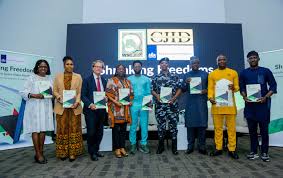Professor of Political Economy, University of Abuja, Ernest Ereke, has warned that Nigeria is “a step away from a closed civic space.” He spoke during the public presentation of the 2024 Journalism and Civic Space Status Report by the Wole Soyinka Centre for Investigative Journalism (WSCIJ) in Lagos, according to a statement yesterday by WSCIJ.
The statement explained that the report, titled “Shrinking Freedoms,” documented 103 incidents of civic space violations reported 342 times in 2024, with journalists as the most targeted group – accounting for over half of all survivors and victims he report added that the Nigerian Police were implicated in over 65% of incidents, exposing persistent institutional weaknesses and impunity.
According to it, violations were almost evenly split between violent and nonviolent acts, while media coverage of such incidents remained. Ereke, who reviewed the report, described the findings as “very disturbing” warning that Nigeria’s democratic institutions are being hijacked and privatised to serve private interests – a development, he characterised, as “state capture in its most dangerous form.”
Founder of the Foundation for Investigative Journalism (FIJ), and a panellist at the event, Fisayo Soyombo, according to the statement, raised similar concerns, noting that threats to press freedom go beyond arrests or physical attacks.
He said: “We often think about freedom only in terms of whether a journalist is alive or detained, but true freedom is about whether journalists can report without fear of reprisals.” According to him, it will be difficult to make progress when the police show a lack of basic understanding of rights and are at the beck and call of politicians.
Other panellists, including Country Director of Amnesty International Nigeria, Isa Sanusi, and Police Public Relations Officer, Lagos State Command, Abimbola Adebisi, reinforced the urgency of protecting press freedom and rebuilding trust between the police, journalists, and the public.
Adebisi acknowledged that the communication gap between the police and the media sometimes fueled mistrust, while highlighting the efforts of the Police Complaint Response Units to address public grievances. She said: “The police cannot do it alone.
We need journalists to report responsibly and accurately to foster understanding.” In her remarks, Executive Director/CEO of WSCIJ, Motunrayo Alaka, described the report as both “a mirror and a call to action”, urging all stakeholders – government, media, and civil society – to work together to ensure that Nigeria remains a society where truth and democracy can truly thrive.














